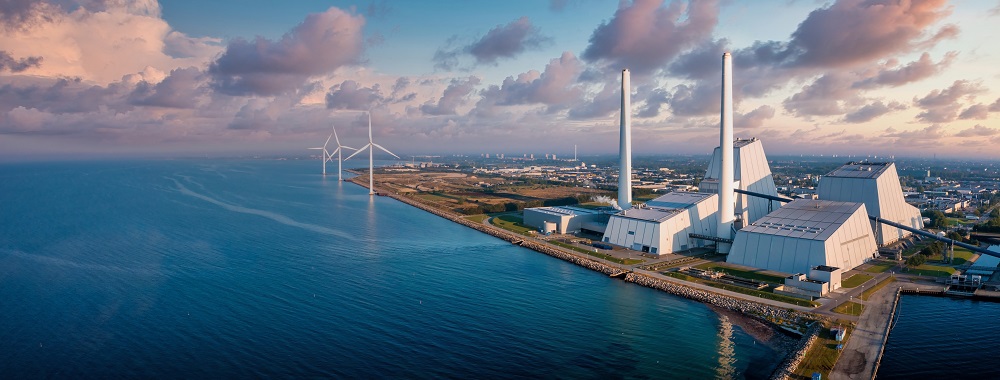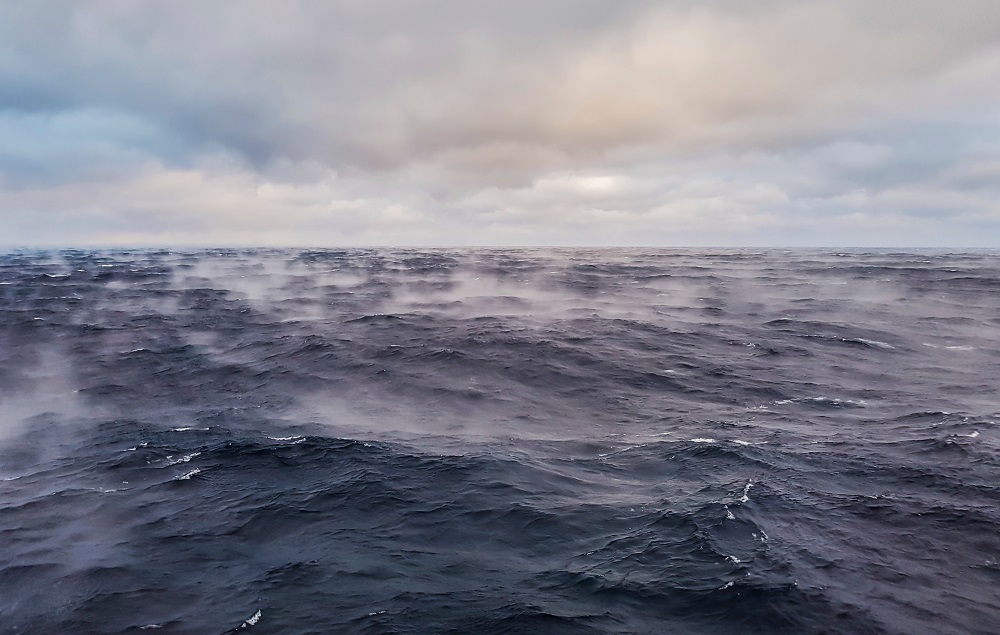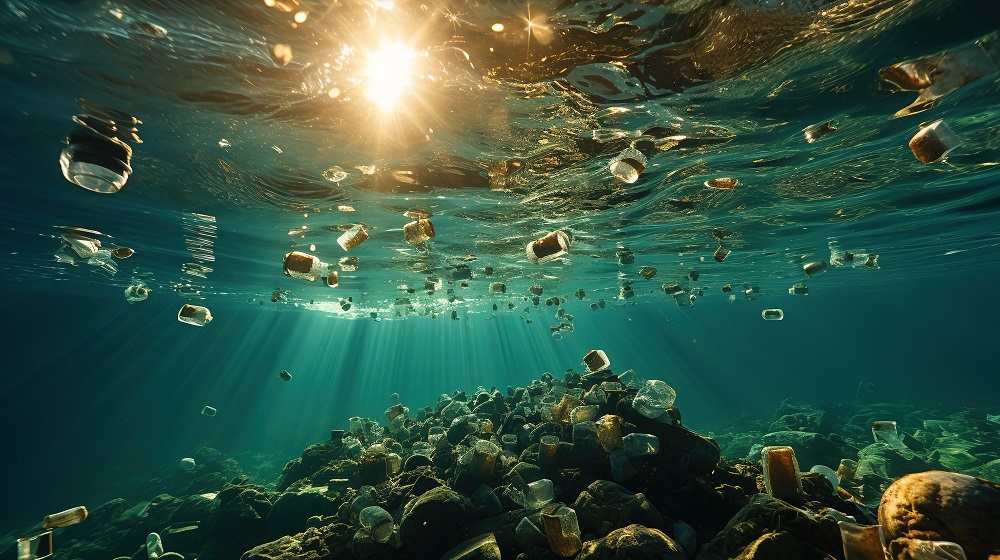The Invisible Wave
Picture your ideal summer vacation. Sun, sand, sea and… pollution? Chances are you’ve seen plastic bottles on the beach. But have you thought about the chemicals that may be in the sea as you swim?
Despite the boom in ESG investing, in other words, environmental, social and governance principles, the finance community remains—like the rest of us—largely unaware of marine chemical pollution.

This lack of awareness mirrors, in many ways, the sector’s understanding of climate change in the mid-2000s. When insurance company Allianz and environmental non-government organisation WWF released their 2005 report, Climate Change & the Financial Sector: An Agenda for Action, they began with a statement of fact that few would think necessary today: “Climate change is real.” The report then outlined the opportunities and risks to the finance sector from climate change: knowledge that just 15 years later is mainstream and ubiquitous.
If investors’ understanding of marine chemical pollution comes to equal their understanding today of climate-related risk and opportunity, the outlook for a zero-pollution ocean may look very different—and much more encouraging.
“The broad issue of chemical pollution tends to sit lower on investors’ agendas than other areas of concern,” says Eugenie Mathieu, senior ESG analyst at Aviva Investors. Eric Usher, head of the UN Environment Programme’s Finance Initiative (UNEP FI), agrees: “For the blue economy overall, we are still very much in awareness-raising mode, trying to get the finance industry to understand the nature of the problem.”
So far, most of the E in ESG has focused on persuading companies to reduce their climate emissions—hence the global wave of corporate pledges to reach net zero. Still, there is growing investor interest in the impact of the economy on nature more broadly, says Matt Jones, head of nature economy at the UNEP World Conservation Monitoring Centre. While the focus on climate will remain, momentum is also growing for investments that are net zero, nature-positive and socially just.
This trend will be an essential driver in the push for a zero-pollution ocean. The EU Taxonomy, a classification system for environmentally sustainable economic activities, which is reshaping the way many businesses assess their environmental impact, has until now focused on climate impacts. In 2023 it expects to publish new rules on:
- The sustainable use and protection of water and marine resources.
- The transition to a circular economy, waste prevention and recycling.
- Pollution prevention and control.
- The protection of biodiversity and ecosystems.
The Taskforce on Nature-related Financial Disclosures framework, which will build on its climate-related cousin, will similarly require investors to consider biodiversity and non-climate-related ecosystem impacts, including pollution. It will launch in 2023.

The prospect of these two initiatives means that many investors are, for the first time, beginning to think about broader environmental impacts as well as climate.
UNEP FI has worked with banks, investors and insurers to develop a set of Sustainable Blue Economy Finance Principles, which may, in future, serve as a guide for investors looking to reduce their exposure to risks related to marine chemical pollution.
Similarly, the UN Global Compact’s Sustainable Ocean Stewardship Coalition works with businesses to tackle waste entering the ocean, particularly plastic waste and nutrient runoff from farms and wastewater. Major investment funds are working with the UN Global Compact to support companies using the coalition’s Sustainable Ocean Principles as a reporting mechanism, according to Erik Giercksky, head of the Ocean Stewardship Coalition.
“Companies have a responsibility towards their shareholders to align with the sustainable ocean principles. This shows that they are delivering on the expectations in the market,” says Mr Giercksky. “We need regulations to have a fair playing field, but while we wait for that to happen, the business sector can act.”
In the future, he hopes, a wide range of insurance companies, lending banks and investment funds will ask their portfolio companies to report against the principles. “In a couple of years,” he says, “this might prove to be a major game-changer” for ocean health.
Back to Blue is an initiative of Economist Impact and The Nippon Foundation
Back to Blue explores evidence-based approaches and solutions to the pressing issues faced by the ocean, to restoring ocean health and promoting sustainability. Sign up to our monthly Back to Blue newsletter to keep updated with the latest news, research and events from Back to Blue and Economist Impact.
The Economist Group is a global organisation and operates a strict privacy policy around the world.
Please see our privacy policy here.
THANK YOU
Thank you for your interest in Back to Blue, please feel free to explore our content.
CONTACT THE BACK TO BLUE TEAM
If you would like to co-design the Back to Blue roadmap or have feedback on content, events, editorial or media-related feedback, please fill out the form below. Thank you.
The Economist Group is a global organisation and operates a strict privacy policy around the world.
Please see our privacy policy here.




 World Ocean Summit & Expo
2025
World Ocean Summit & Expo
2025 UNOC
UNOC Sewage and wastewater pollution 101
Sewage and wastewater pollution 101 Slowing
the chemical tide: safeguarding human and ocean health amid
chemical pollution
Slowing
the chemical tide: safeguarding human and ocean health amid
chemical pollution Hazardous chemicals in plastics - the discussions at INC
Hazardous chemicals in plastics - the discussions at INC




















